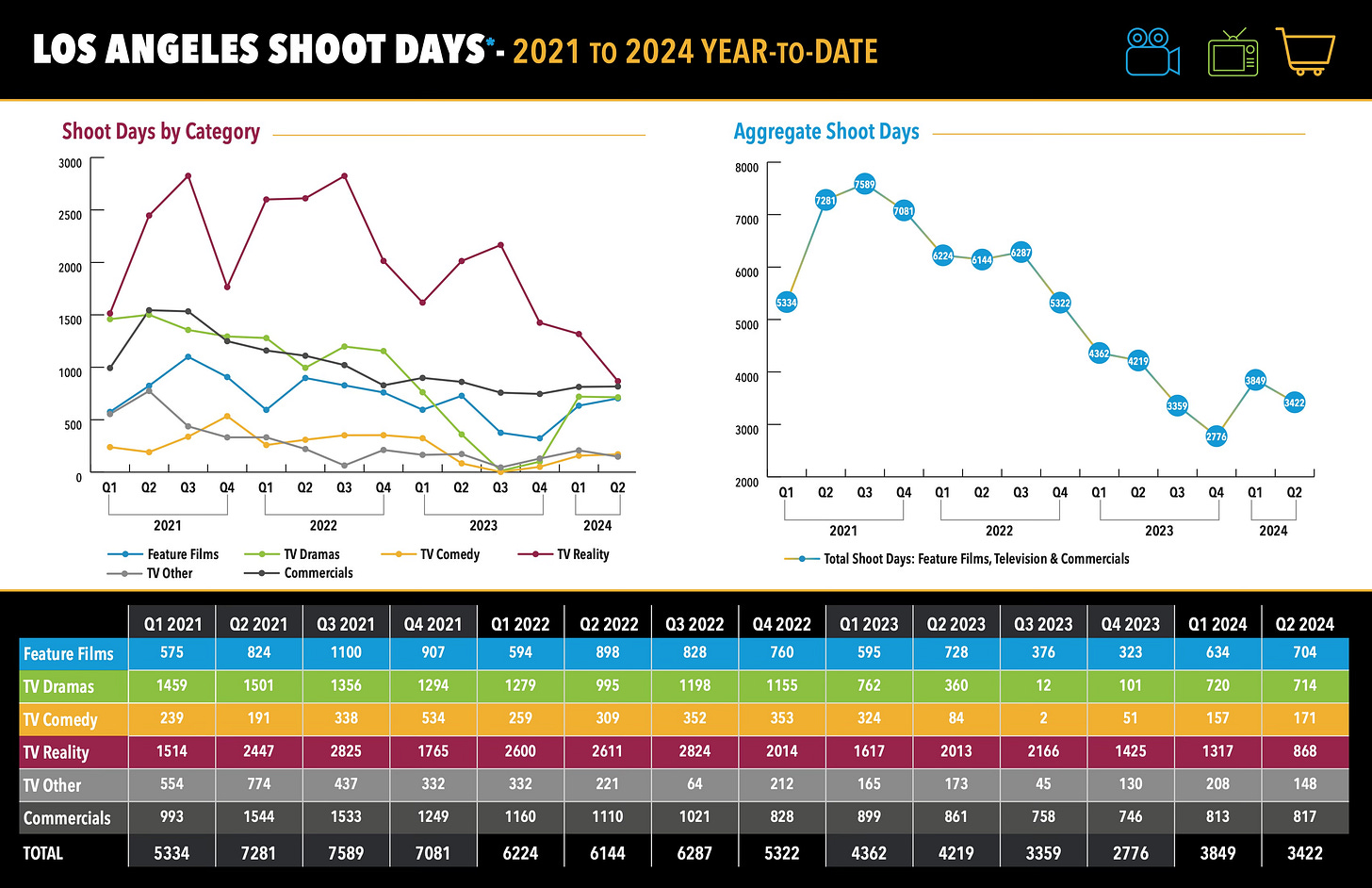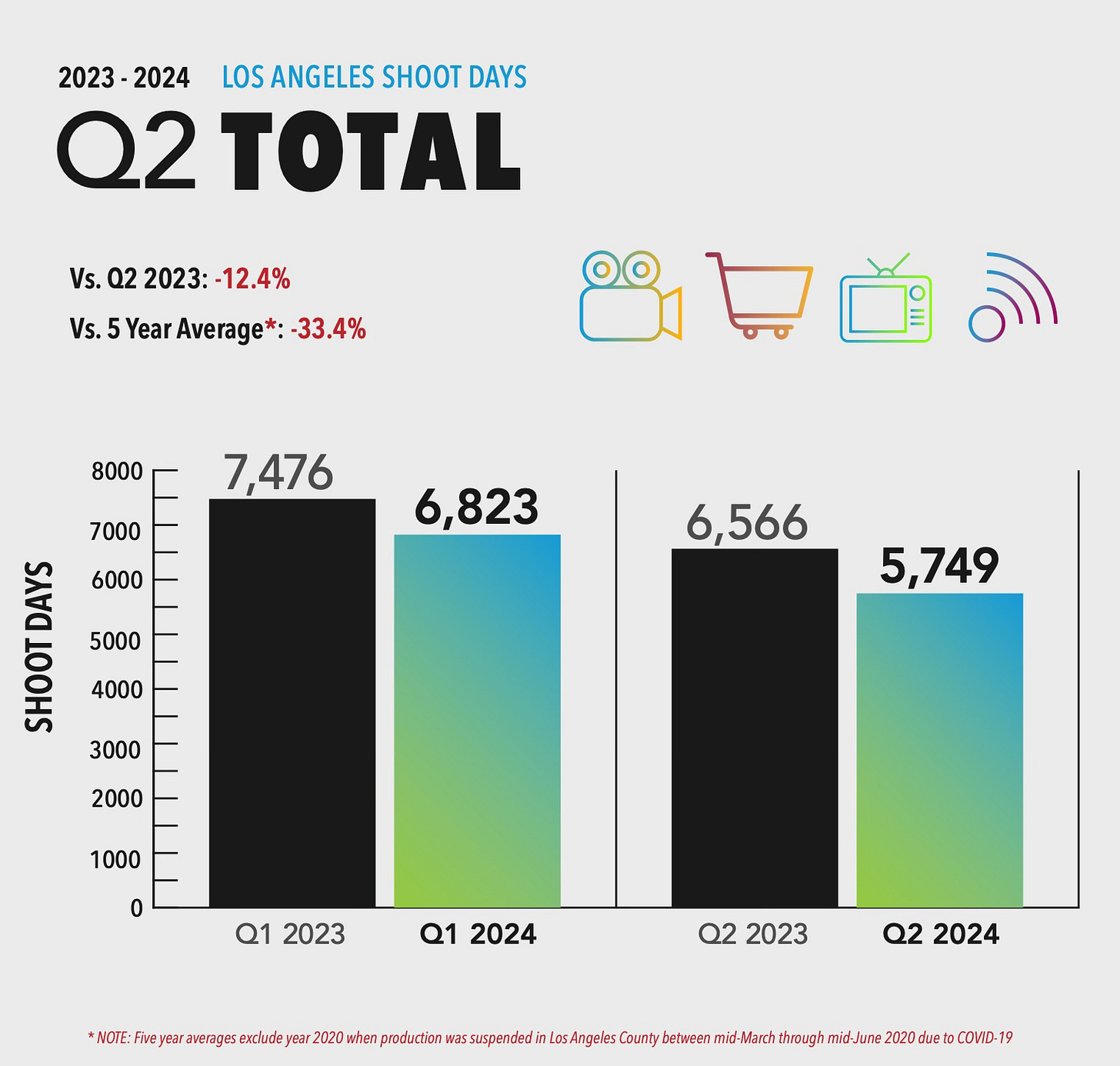To begin with, yes, I ripped off an old folk ballad with that sub-headline. But, in all fairness, being Hollywood crew is starting to feel like an emotionally drawing folk song, the angst, the longing for better, simpler times, and increasingly, missing your love while you’re on the road. “Five hundred miles, five hundred miles, I can hear the whistle blow., I can hear the whistle blow, five hundred miles.”
Woody Guthrie would completely understand the plight of filmmakers today. While Business class airfare isn’t quite the humble hopping of an empty boxcar with nothing but your rucksack and guitar, Hollywood life is becoming just as Nomadic by nature, lacking the romance.
The “Runaway Production” cries of the late 90s and early oughts seem quaint by comparison now. At that time labor disputes, especially the SAG Commercials contract strike of 2000, pushed work to Toronto and Vancouver. They were cheaper all around, with cheaper crews, locations, and local Actors on buyout deals, so when the strike concluded, lots of work stayed there. When the Canadian locals got wise and started charging more, and the unions expanded their reach, it all moved to São Paulo and Buenos Aires. It didn’t put Canada out of business, the expanding production centers just siphoned more work off of LA and NY.
The march of Global Production over the past 25 years, several more labor actions, the ebbing of the Streaming wars, and the associated production cutbacks should help to complete the picture for you.
As Dylan put it “Ain’t no use wonderin' why babe, if you don’t know by now. Ain’t no use wonderin' why babe, it don’tmatter anyhow.”
Now, the projects are shooting in expanding production settings. Mexico City, Bogota, Santiago, Budapest, Romania, Bulgaria, South Africa, London, Paris, Sydney, Aukland, and Berlin, just to name a few I care to name because the list is too long, and I don’t want some LA Scripty to off themselves while reading this.
Back before the splintering of permanent production bases in the US, I would advise clients to make their lives in LA or NY. These days, if I’m asked the same question, I don’t advise either place anymore. With the best State tax incentives moving around the country and the world almost yearly, the answer is beginning to border on, “You’re going to be traveling to just about every job, so someplace that has an International airport nearby.”
While Hollywood isn’t exactly the “Dust Bowl,” shooting days in Los Angeles have dropped 33% in the aggregate over the last 5 years. Being on the front line of booking crew, I can attest that the real number is probably between 40% and 50% down over 5 years ago. Luckily, for me, I represent the talent that productions will travel, so they are working and business is good, but the data trends are not great for Hollywood in particular.
Where does this leave Los Angeles in five to ten years? With mass layoffs at the Studios, and scripted and unscripted production companies laying off many staff members, there isn’t enough room in the boat for everyone anymore, and a good amount of those people will end up leaving the industry and/or the city for greener pastures.
The bigger problem becomes local production infrastructure, and that LA local 150,000 jobs. Everyone from Grips to Caterers and everyone in-between are now having trouble making ends meet, and those are the ones with established careers. What about people just entering the industry? There’s just no room for them. The Art Director’s Guild went so far as to suspend their internship program for one year, arguing there are not enough projects shooting in LA to put interns on. There’s the rub.
If you can’t train tomorrow’s Production Designers, Gaffers and Assistant Camera-people, where are they going to come from? Hollywood and NY will become like any quasi-production center around the world. One or two good crews per city, and past that you’re using Uber Eats drivers and semi-retired hairdressers unfamiliar with how to make a shooting day.
Wake up Sacramento, we’re looking at you. The only way for California to preserve Entertainment as one of the signature industries based here is to act and act now.
The state of Georgia has a tax incentive program that provides filmmakers a 40% rebate on costs for Below-the-Line (crew) AND Above-the-Line (talent) with no annual cap. That means simply that the tax program is open-ended. If they can attract 2 Billion Dollars in projects, the rebate is in effect. All commers. They might as well make a commercial with Oprah, “You get a rebate, you get a rebate, you get a rebate!”
Meanwhile, in California, the program is capped at $330 million annually and only applies to Below-the-Line costs. No high-priced Actor salaries are eligible, where the big hits are.
What’s crazy is that tax credit programs work exceptionally well in bringing net revenue to the State. The California Film Commission just reported that: “The California Film and Television Tax Credit 2.0 has contributed almost $21.9 billion in economic output over five years, supporting more than 110,000 total jobs, and returned to state and local governments an estimated $961.5 million in tax revenue…. The findings show that for every tax credit dollar allocated, the state benefitted from at least $24.40 in economic output, $16.14 in gross domestic product (GDP), $8.60 in wages, and $1.07 in state and local tax revenues.“
Wait, what? For those following at home, that is a 2400% return on each 1 dollar spent. All that per dollar revenue, based on an annual capped credit of $330 Million? Let’s face it, $330 million is the catering bill at Netflix for a year. The value to the State and the Hollywood ecosystem would be exponential if there were no cap and the tax program covered Above the Line talent also.
Again, it comes down to simple math: 1 Billion Dollars x 2400% translates to 24.4 Billion Dollars in annual revenue. The state would be competitive again, and Entertainment jobs would stay here. More importantly, we could rebuild the moviemaking infrastructure and make it sustainable by training tomorrow’s Filmmakers to have the local work they can get hired for in their entry-level years.
I know my clients would rather stay home and see their families than be constantly embodying the Hollywood Nomad personae, and that would be great, but it’s a much bigger picture than that. Like all things political, there is no long-term thinking. Only, staying with policies that will get politicians through the next election cycle. It’s time to put our collective foot down.
Mayor Karen Bass put together a committee called the “Entertainment Industry Cabinet” to study the problem. The first meeting was this past July 24th, I would say about 5 years too late. The problem doesn’t need studying at this point. The problem is obvious, and the math is clear. Shooting days are off 33% and that causes a domino effect across the entire LA economy. Those lost days have gone to places with better incentives than California. It needs to be fixed and very soon before LA becomes Detroit. Massive unused infrastructure and talent going to waste, massive exodus of population**, and urban blight caused by erosion of the tax base. All because of a lack of political foresight.
If we all want to avoid “The Midnight Train to Georgia***,” (literally) we have to find ways to keep productions here. As Rene Zellweger said in ‘Jerry Maguire,’ “Shut up, you had me 2400% returns,” or something like that.
**All I know is I just saw Jed and the rest of the Clampet family in their jalopy, on the 15, headed back to Tennessee. When you can’t keep Oil Barons in Beverly Hills, you’ve got a problem… just sayin.
***I realize that’s R&B, but I’ve run out of good folk references.







"If you can’t train tomorrow’s Production Designers, Gaffers and Assistant Camera-people, where are they going to come from?"
Look to your A.I. image that leads the article. There's your answer. Thanks.
"Those lost days have gone to places with better incentives than California. It needs to be fixed and very soon before LA becomes Detroit."
#hollywood
#CaliforniaFilmAndTelevisionTaxCredit
#filmproduction